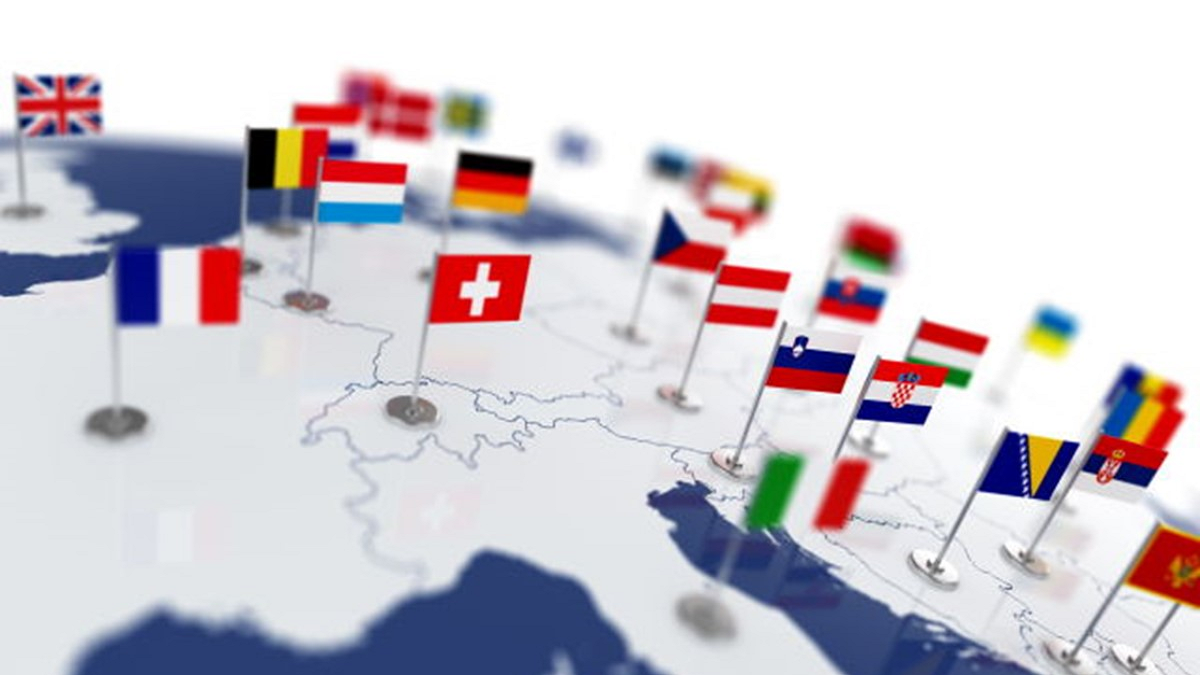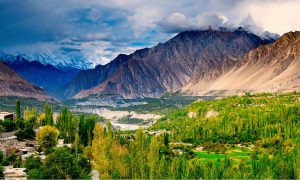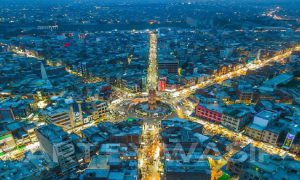The field of global politics is dynamic and ever-changing, influenced by a variety of elements such as economics, culture, security, and ideology. The most recent changes in world politics are particularly interesting and significant because they shed light on the current status of the globe and the opportunities and challenges that face both nations and individuals.
The COVID-19 epidemic, the emergence of authoritarian regimes, and the escalating rivalry between great countries are just a few of the recent trends in international politics. In addition, problems like climate change, economic inequality, and human rights continue to influence the political scene globally and provide difficult problems for both citizens and governments.
Latest Developments in Global Politics
Coronation of Charles III and Camilla
In a once-in-a-generation royal spectacle, Britain’s King Charles III was crowned in front of tens of thousands of well-wishers who assembled in the heart of London despite the rain and hundreds of prominent guests inside Westminster Abbey.
Even though Charles ascended to the throne after his mother, Queen Elizabeth II, passed away in September of last year, the actual crowning of the monarch took place on Saturday.
The service was a deeply spiritual occasion, fitting given that Charles serves as the Supreme Governor of the Church of England in addition to being the head of state of the United Kingdom and 14 other nations.
The Canterbury Archbishop Justin Welby placed the 360-year-old St. Edward’s Crown on Charles’ head in the day’s most crucial event. The Anglican Church’s spiritual leader then cried out, “God Save the King.”The elaborate event, which lasted just over two hours and was conducted according to a pattern that has largely remained unchanged for more than 1,000 years, was an hour shorter than Elizabeth II’s coronation in 1953.
But it has been updated in a few significant ways. During the ceremony, the archbishop recognised the diversity of religions practised in the UK and stated that the Church of England “will seek to foster an environment in which people of all faiths may live freely.”
Meeting of SCO Foreign Ministers in GOA,2023
The foreign ministers of the SCO’s member nations concluded their discussions in preparation for the organization’s summit in Panaji, Goa, in July. In the fields of trade, technology, commerce, security, and sociocultural relations, the proposals seek to increase collaboration between the SCO member nations. S. Jaishankar, the minister of external affairs, presided over the SCO Council of Foreign Ministers meeting that took place at the Taj Exotica resort in Benaulim, Goa. Those present at the Goa summit included the foreign ministers of China (Qin Gang), Russia (Sergey Lavrov), Pakistan (Bilawal Bhutto-Zardari), and Uzbekistan (Bakhtiyor Saidov).
Read More: Democracy In Pakistan: Of The Elite, For The Elite, By The Elite – About Pakistan
China and the United States Adjust to a New Cold War
Both China and the United States are striving to portray their deteriorating relations in a way other than a cold war. Even while it gets ready for one, the Biden administration insists that it has no desire to start a cold war. A conspicuous example of this was the Department of Commerce’s announcement in October 2022 of a ban on the export of sophisticated semiconductors to China. China publicly claims that US-China ties are essentially competitive while making clear at its 20th Party Congress that it is now a security state with strong ideological underpinnings. The risk of a catastrophic breakdown in relations as a result of a war in the Taiwan Strait has escalated with mistrust at an all-time high.
The Lens of World Order
If technology and geo-economics are the main issues at stake in the new Cold War, Washington and Beijing are vying for relative power in a changing world order. Each wants to establish ideas, standards, laws, and international structures that support the progress of their own objectives and make it more difficult for their adversary to further their own agenda. This competition includes well-known multilateral organisations like the UN, WTO, IMF, and World Bank; minilateral organisations like the Quad, Aukus, Shanghai, and Cooperation Organisation; and the military, trade, aid, and development plans of Beijing and Washington.
Beijing has started arguing more persuasively for an expanded Chinese involvement in the formulation of international law and in talks of shared values and good governance. Many people in the Global South support Beijing’s calls for complete sovereignty, non-interference, more pluralistic international discourse, and rejection of American criticism. Many of the nations that have “signed on” to the Belt and Road Initiative are also showing interest in Xi Jinping’s Global Development Initiative (GDI) and Global Security Initiative (GSI), despite the vagueness of both initiatives.
Saudi-Iran Rapprochement
In a significant development, on March 10, 2023, Saudi Arabia and Iran signed a deal to mend their diplomatic ties after they were severed in 2016 after protesters against the Saudi execution of Shia cleric Nimr Al Nimr ransacked the Saudi embassies in Tehran and Mashhad. Both nations committed to upholding each other’s sovereignty and refraining from meddling in one another’s internal affairs. Additionally, they committed to put into effect the security cooperation pact they had signed in 2001 and to work together in other areas like trade, economy, and investment.1 The deal was inked in Beijing, which served as a mediator between the parties and recently moved the five rounds of negotiations between Saudi Arabia and Iran scheduled to take place in 2021 and 2022 to Beijing.
Saudi Arabia seeks to defend its borders and vital infrastructure from Houthi attacks by negotiating a deal with Iran to bring things back to normalcy. Long-term peace with Iran is also essential if Saudi Arabia is to meet the goals set forth in Saudi Vision 2030. A prolonged military presence in Yemen is a barrier to achieving these objectives. Therefore, Saudi Arabia’s decision to reach an agreement with Iran is sensible from the standpoint of both its national security and economic growth.
Iran would attempt to stop its growing isolation in the neighbourhood and abroad by reestablishing diplomatic ties with Saudi Arabia. Additionally, it anticipates getting support for its nuclear issue from the neighbouring nations. Its relations with Bahrain and the UAE, as well as the rest of the Gulf Cooperation Council (GCC), would be strengthened by an agreement with Saudi Arabia. For the Iranian leadership, which has been dealing with protests in recent months, the agreement would provide an immediate source of relief.
Sudan Crises
On April 15, 2023, a war between opposing groups of Sudan’s military government erupted. Conflicts that erupted in western Sudan’s capital city of Khartoum and the Darfur area served as the catalyst for it. At least 559 people have died and more than 4,000 others have been injured as of April 25.
Rapid Support Forces (RSF), a paramilitary group, launched attacks on important government facilities to start the conflict. All around Sudan, especially in Khartoum, there have been reports of airstrikes, artillery, and gunfire. Both Sudan’s de facto leader and army chief Abdel Fattah al-Burhan and RSF leader Mohamed Hamdan “Hemedti” Dagalo have claimed control of a number of important government buildings, including the general military headquarters, the Presidential Palace, the Khartoum International Airport, Burhan’s official residence, and the SNBC headquarters. Sudan has been described as being on the verge of a “burgeoning civil war” as a result of the rivalry between the two generals.
Foreign invasions and resistance, ethnic tensions, religious disagreements, and competition for resources have all played a role in Sudan’s history of wars. Two civil wars between the central government and the southern regions resulted in the deaths of 1.5 million people in its modern history, and a protracted conflict in the western area of Darfur has resulted in the displacement of two million people and the deaths of over 200,000 people. Sudan has seen more than fifteen military takeovers since gaining independence in 1956, and it has been governed primarily by the military with only occasional intervals of democratic civilian parliamentary government.
Hamza Yousaf-1st Muslim Minister of Scotland
Humza Yousaf was confirmed as Scotland’s first minister on Tuesday,28th March 2023, making history as the country’s first Muslim first minister and the first person of colour to lead a Western democracy.
The achievement comes five months after Prime Minister Rishi Sunak became the first Hindu leader in the United Kingdom. London Mayor Sadiq Khan, a Pakistani immigrant’s son, is in charge of Britain’s capital city.
All three politicians are examples of the rapidly changing political landscape in Britain, a nation whose imperial past has shaped its multi-ethnic present in uncertain and occasionally traumatic ways.
“There’s an expectation now, or a familiarity with diversity in British politics, that we don’t see in other European countries,” said Sunder Katwala of British Future, a think-tank that researches identity and ethnicity.
A day after being chosen leader of the ruling Scottish National Party, Yousaf, 37, was confirmed as first minister by lawmakers in the Scottish parliament, which has its seat in Edinburgh. Scotland, a 5.5 million strong nation that is a part of the United Kingdom, has a semi-autonomous government with extensive authority over things like health and education.
Read More: Role of Foreign Investment in Economic Development of Pakistan – About Pakistan
Conclusion
In conclusion, the most recent developments in international politics reveal a landscape that is complicated and rapidly changing, with a variety of trends, opportunities, and problems reshaping the globe today. These factors, which range from the ongoing COVID-19 epidemic to the growth of authoritarian governments and escalating global rivalry, are making it more difficult for both citizens and policymakers to find innovative solutions to the critical problems the world is currently experiencing.
Global politics will undoubtedly change and evolve as time goes on, bringing with it new possibilities and problems. We can, however, work together to create a more tranquil, prosperous, and sustainable world for present and future generations if we continue to be involved, knowledgeable, and dedicated to the ideals of cooperation, democracy, and human rights.





















